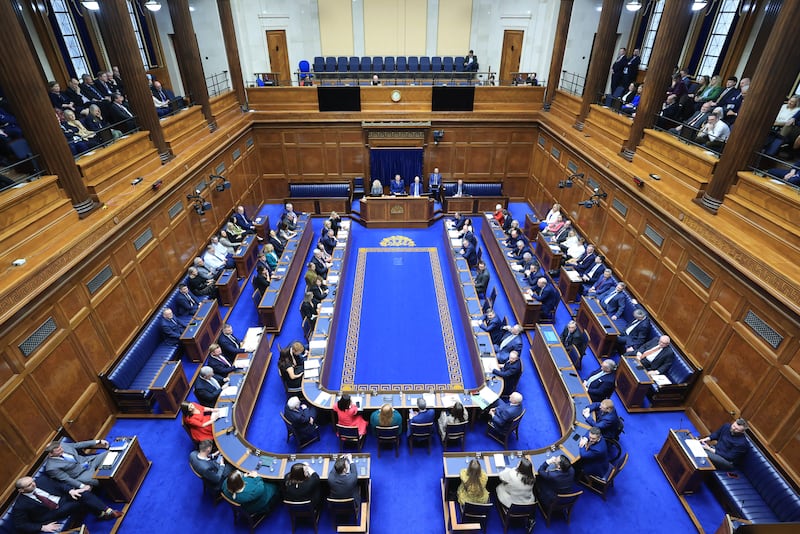Last week saw the Assembly’s second Opposition Day in as many months as the SDLP took control of the agenda with the aim of holding the Executive parties to account and putting forward motions highlighting its own priorities.
As the official opposition, the SDLP is entitled to set Assembly business for 10 days per year, and utilised this time with debates calling for the removal of the Universal Credit two-child limit, a ban on no-fault evictions and eradication of fuel poverty.
The opposition leader, Matthew O’Toole, criticised the low turnout of Executive party MLAs during the Universal Credit debate in particular and suggested it indicated a lack of concern for child poverty.
However, the reality of opposition politics could mean that the SDLP introduces many more motions to a near-empty chamber. Even the South Belfast MLA himself noted that the other parties may not have wanted to give the Opposition Day much credence.
This is true: particularly in these early days of the Assembly, the Executive parties will be unwilling to open themselves up to opportunities for criticism. In most legislatures opposition motions are often met with low turnout and unenthusiastic involvement, rightly or wrongly.

As all of the parties and the Assembly structures continue to work out the dynamics of having an official opposition, the Executive parties will be reluctant to say or do anything which would shine further light on opposition motions.
Matthew O’Toole and his team of MLAs also have a key role in scrutinising the work of the government and holding ministers to account in their daily work through questions and by sitting on the various committees.
A challenge for the party in navigating this new dynamic is that the institutions, as originally designed, would not have included such a position. The nature of the consociational structure means that all of the parties, whether or not they are in the Executive, have a role to play in holding others to account, something which could dilute the role of the official opposition.

At present, another big challenge for the SDLP as an opposition party is that there is so far very little to scrutinise. With neither the Programme for Government nor the 2024-25 budget having being brought forward (although promised for the coming weeks), it’s difficult for the official opposition to officially oppose all that much.
Most of the Assembly business brought forward by Executive parties since its return in February has been motions calling attention to priorities and emergencies in society, many, if not all of which, have been compounded due to the lack of a government in recent years.
Calling attention to these issues is, of course, important and necessary. That said, the Executive parties have quickly found themselves in a situation where they are keen to make a priority of everything, running the risk of making a priority of nothing. With only three years left of this mandate, the time is short to make substantial change and the Executive faces some incredibly difficult choices if it hopes to effectively progress in any area of work.

That said, the existence of an official opposition could be considered a positive step for the devolved institutions. One of the challenges faced by consecutive Executives has been engendering any sort of collective responsibility for its work, with ministers tending to withdraw into silos with little regard for joint decision-making.
The Executive parties have quickly found themselves in a situation where they are keen to make a priority of everything, running the risk of making a priority of nothing
Notwithstanding the policy differences which, clearly, still exist within the Executive, there is the possibility that the existence of an official, funded and vocal opposition could encourage it to act in a more cohesive manner. The existence of the opposition, in itself, could contribute in some way to the normalisation of politics at Stormont.
Once a legislative programme and budget proposals have been brought forward, once the ministers have begun bringing forward the substantive work and once policies begin to take up more of the Assembly’s time than politics, the effectiveness of the opposition can be properly assessed.
Until then the SDLP will be aiming to carry out the role of opposition so effectively that it can leave it behind it entirely.


